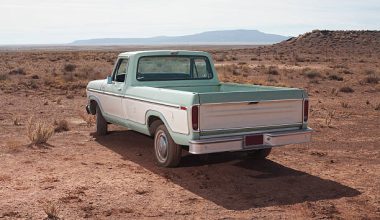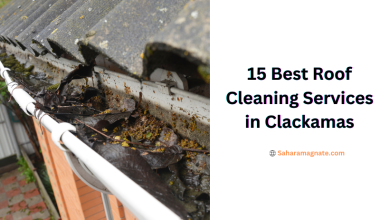Starting a borehole drilling business is a great way to tap into an essential service with strong demand.
If you play your cards right, you can build a thriving company in this field. The barriers to entry are low, the work is satisfying, and the potential for growth and profits is huge.
We will review the 11 steps to show you how to start your own borehole drilling business from scratch.
By the end, you’ll have a clear roadmap to get your first clients, purchase equipment, hire staff, and scale your operations.
Let’s get started!
How to Start a Profitable Borehole Drilling Business
Starting a borehole drilling business requires serious time and financial commitment, but it can be gratifying.
Here are the basic steps to get your business up and running:
Step 1: Determine Your Target Market and Customers
You must identify your ideal customers to build a profitable borehole drilling business.
Are you targeting rural homeowners, farmers, or large commercial clients? Each has different needs and budgets.
For homeowners, focus on those in remote areas without municipal water access. Promote how a borehole provides independence and convenience.
Read Also: How to Start a Profitable Energy Drink Business in 11 Steps!
Farmers may need irrigation or livestock watering boreholes. Emphasize how you understand their unique requirements.
Large commercial clients like mining companies, manufacturers, or real estate developers offer significant revenue potential.
However, their projects usually require large-diameter boreholes, specialized equipment, and experienced crews.
Ensure you have the resources and expertise to meet their demands before taking on such clients.
A good place to start is by determining the types of properties and businesses in your area. Then research their potential needs and costs.
Certain customers, like rural homeowners, maybe a good entry point to build your portfolio before expanding into more complex jobs.
Whichever customers you pursue, build your knowledge of their needs and priorities.
Step 2. Develop a Winning Business Plan
A winning business plan is essential to get funding and scale your business. Here are the key steps to develop a plan for your borehole drilling company:
Outline Your Vision and Mission
Lay out your vision for the company and how you will achieve it. Your mission statement should be clear, compelling, and resonate with your target customers.
For example, “Our mission is to provide affordable, sustainable access to clean groundwater across [location] by 2025.”
Analyze the Market
Research the borehole drilling industry in your area to determine the competition, potential customers, and trends.
Find your niche in the market that sets you apart. For instance, you may focus on residential, agricultural, or industrial customers.
Read Also: How to Start a Profitable Candy Cart Business in 11 Steps
Define Your Strategy
Determine how you will execute your vision and gain a competitive advantage. Your strategy should include:
- Pricing: Charge a premium for fast, high-quality service. Offer discounts for bundled services.
- Marketing: Build a professional website, start a blog, use social media, join networking groups, and offer promotions and discounts.
- Customer experience: Provide estimates within 24 hours. Have friendly, knowledgeable staff. Guarantee work for 6-12 months.
Create Financial Projections
Develop 3-year financial projections, including income statements, cash flow statements, balance sheets, and essential metrics and ratios.
Project realistic revenue, costs, profit margins, and financing requirements to start and maintain your business.
Define Risks and Mitigation Strategies
Identify potential risks like economic downturns, new competitors, loss of key staff, or equipment failures.
Determine strategies to mitigate risks, such as diversifying your customer base, cross-training employees, or leasing rather than purchasing new equipment.
Step 3: Obtain the Necessary Certifications
You must obtain the proper certifications to run a borehole drilling business. These ensure you operate legally and safely.
As a borehole driller, you must obtain a Well driller’s license or certification, which typically requires completing an accredited training program and passing an exam.
Requirements vary by state, so check with your local governing agency.
These certifications demonstrate your knowledge and competence to potential clients.
Step 4: Permits
For each new borehole you drill, you’ll need to obtain the necessary permits from local authorities and utility companies.
This helps avoid hitting underground pipes or wires during drilling and ensures the borehole meets depth, casing type regulations, and other requirements.
The specific permits will depend on your location but may include:
- Utility clearance – Ensures no conflicts with underground utilities
- Water Well construction permit – Verifies the borehole is properly constructed and sealed
- Permit to operate drilling equipment – Allows you to operate heavy machinery
Step 5: Insurance
You should also carry the proper insurance coverage, like general liability insurance, professional liability insurance, and workers’ compensation insurance.
This protects you and your crew in the event of an accident or if there are issues with a borehole after drilling is completed.
Step 6: Purchase High-Quality Drilling Equipment
You’ll need to invest in professional-grade equipment to get your borehole drilling business up and running.
Buying high-quality equipment may require a sizable initial investment, but it will save you money in the long run through lower maintenance and repair costs.
Quality tools will allow you to work more efficiently and minimize downtime.
No matter what, don’t cut corners when it comes to your equipment. Your rig and tools are the foundation of your business, and subpar equipment could compromise safety, productivity, and the quality of your work.
Investing in professional-grade gear is essential for establishing a reputable borehole drilling operation.
Some equipment you will need to start a profitable drilling business include:
I. A Drill Rig
Look for a model with at least 50 horsepower output that can drill down 200-500 feet. Top brands are Atlas Copco, Ingersoll Rand, and Drilltech.
II.Drill Pipes and Drill Bits
You’ll need hardened steel drill pipes and bits specifically designed for cutting through rock. Carbide drill bits provide maximum durability.
III. Mud Pumps
Mud pumps circulate drilling fluid down the borehole to lubricate the drill bit. Look for a pump with a minimum flow rate of 300 liters per minute.
IV. Additional Gear
Don’t forget essentials like generators, toolboxes, personal protective equipment, pipes, casings, and a water tank.
Step 7: Build a Professional Website
A good website is essential for any modern business. For a borehole drilling company, your website should provide information on your services, experience, credentials, and contact details.
Include high-quality photos of your team and equipment in action. Optimizing your site for search engines will help potential clients find you.
Step 8: Create Social Media Profiles
Social media is a highly effective way to reach new customers. Start profiles for your business on platforms like Facebook, Instagram, and LinkedIn.
Post updates, share photos and videos of your work, promote your services, and engage with followers.
Respond promptly to any questions or comments. Build your social following over time through regular posting and paid advertising.
Step 9: Network in Your Industry
Find new clients and market your services by networking. Get to know others in adjacent fields, like well drillers, pump installers, and geologists.
Attend industry events, join local business organizations, and look for opportunities to partner or cross-promote.
Word-of-mouth and personal connections are powerful ways to find new clients.
Step 10: Advertise Strategically
Place ads on websites and in publications that your target customers frequent. This could include community Facebook groups, classified listings sites, local newspapers, trade journals, and radio stations.
Sponsor relevant local events or sports teams to increase your visibility. Carefully track the results of your ads to determine what’s most effective.
Read Also: 5 Tips to Start a Profitable Spray Tan Business
Step 11: Offer Promotions and Discounts
Run special limited-time offers like discounts for new customers or package deals on multiple boreholes.
This incentivizes people to act quickly and choose your services over competitors.
Be sure to promote any promotions heavily on your website, social media, and with ads.
FAQ
How Much Can I Use to Start a Borehole Drilling Business?
Starting a borehole drilling business needs a good amount of money. But it can be worth it because you can make much money back.
Different things affect how much it costs to start a business. These include your team size, legal things, your location, and the technology you use.
You will need funds to purchase drilling equipment, such as a drilling rig, drill bits, and trucks for transportation.
Additionally, you may need to allocate funds for insurance, permits and licenses, employee salaries, and marketing expense
Which Software Do You Need for a Borehole Drilling Business
A borehole drilling business may benefit from using several software applications to streamline operations and enhance efficiency.
Here are some software options commonly used in the industry:
1. Borehole Design Software
These software tools help plan and design the borehole drilling process, considering geology, well depth, and aquifer characteristics.
Examples include AquiferWin32, RockWorks, and Surfer.
2. Project Management Software
This software helps organize and manage various aspects of drilling projects, including scheduling, resource allocation, task tracking, and collaboration.
Popular project management tools include Trello, Asana, and Microsoft Project.
3. GIS Software
Geographic Information System (GIS) software allows you to analyze and visualize geographical data relevant to your drilling operations.
It can assist in site selection, mapping, and monitoring. Widely used GIS platforms include ArcGIS, QGIS, and Google Earth Pro.
4. Equipment Maintenance
This software enables you to track and manage the maintenance and repairs of your drilling equipment for optimal performance.
Examples include CMMS (Computerized Maintenance Management System) software like eMaint, UpKeep, and Fiix.
Other software for keeping financial books and customer relationships is also handy.
What Does the Cost per Meter of Drilling Mean?
The cost per meter of drilling is how much money a mining company needs to spend for each meter they drill into the ground to find minerals or other things.
To calculate the cost per meter, divide the total cost of drilling by the total number of meters drilled.
Conclusion
With consistency and patience, implementing these 11 steps, you can start a profitable borehole business.
Planning and preparation are key to minimizing risks and maximizing success in your borehole drilling business.
Also, with hard work and perseverance, you’ll be drilling new boreholes quickly and building a successful business.
Keep working to expand your client base, and your operation will continue growing and thriving over the long run.
Develop a clear service offering and pricing structure for each segment. And don’t forget about customer service.
Your ability to deliver quality work on time and within budget will determine whether those clients become long-term customers.









